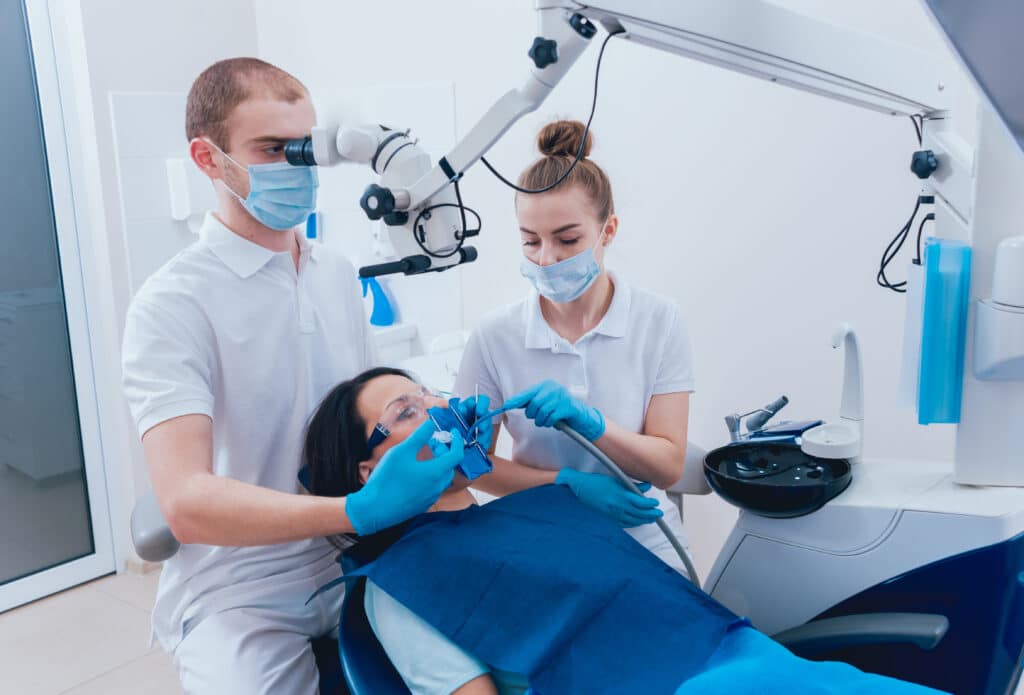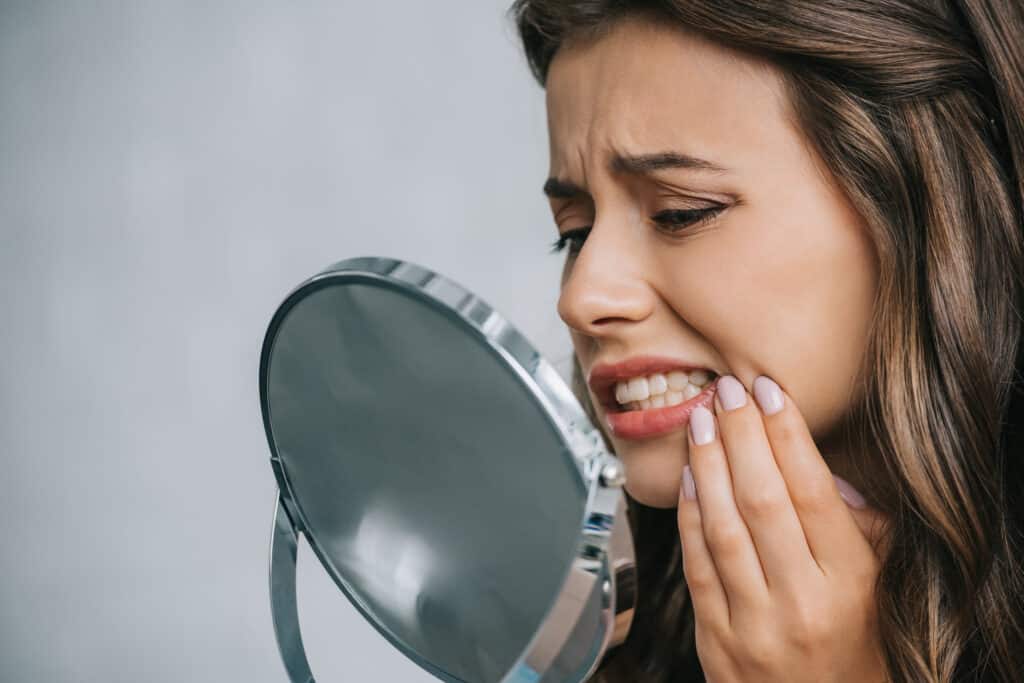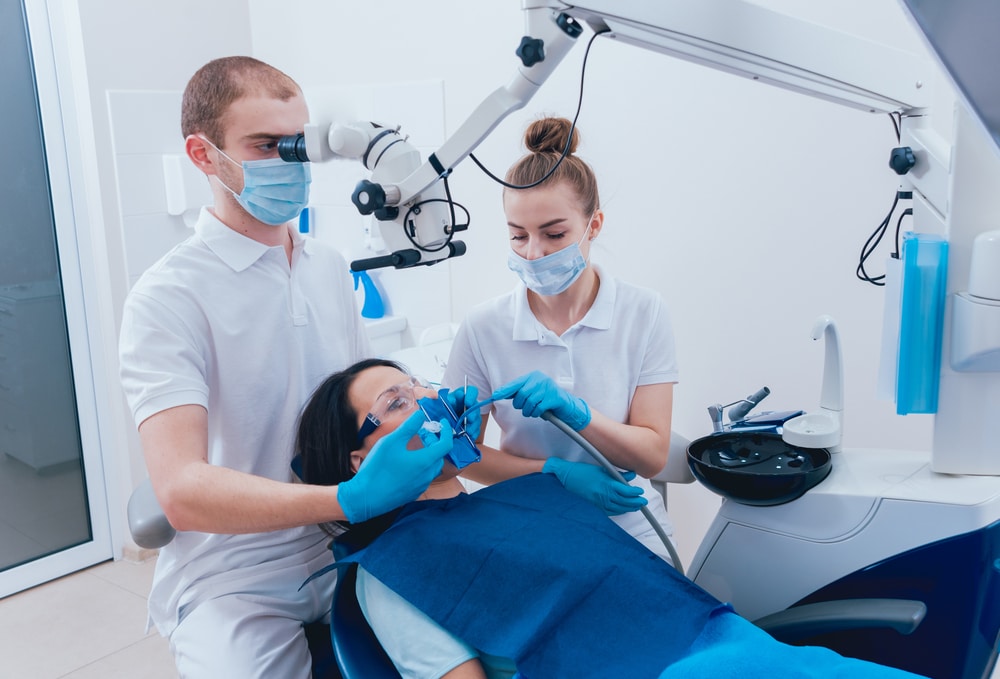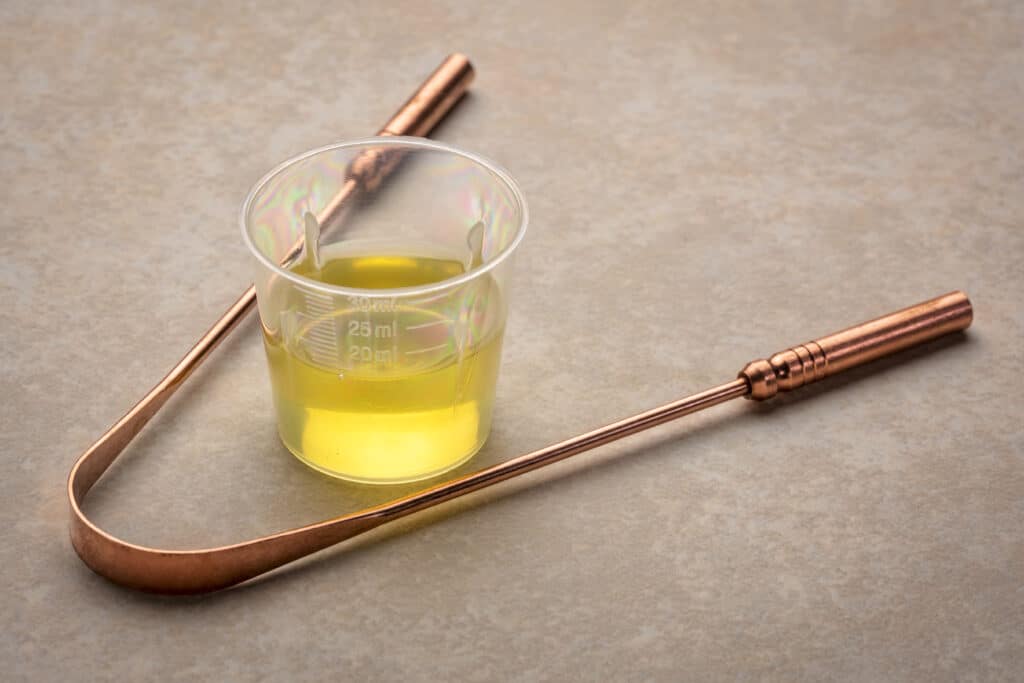
While oil pulling is an ancient oral hygiene practice, it has recently become much more popular due to a large collection of TikTok videos claiming the practice can save your teeth from decay. Some have even claimed that the practice has removed cavities from their teeth, allowing them to avoid advanced infections and root canals. While there are a great number of people stating how beneficial oil pulling has been for their teeth, can incorporating this practice into your oral hygiene routine save you from a root canal?
At David G. Johnson, DDS, we want our patients to understand how the practice may be beneficial to their teeth and whether they should consider incorporating it into their current oral hygiene routine. If you need a root canal and are considering putting it off in order to try oil pulling instead, keep reading to learn whether this is the best option for your oral health.
What is Oil Pulling?
For over 5,000 years, oil pulling has been used as an Ayurvedic therapy. This practice involves swishing a tablespoon of oil in your mouth like a mouthwash but for longer periods of time, often between 2 and 30 minutes. While traditional Ayurvedic therapy calls for the use of sesame oil, coconut oil has become the more popular alternative because of its ability to reduce inflammation and fight harmful bacteria.
It has been said that oil pulling can prevent tooth decay, bad breath, bleeding gums, and more dental irritations. While it has become a much more popular oral hygiene practice due to its increased popularity on social media, it is important to note that the American Dental Association does not currently recommend adding oil pulling to your current oral hygiene routine.
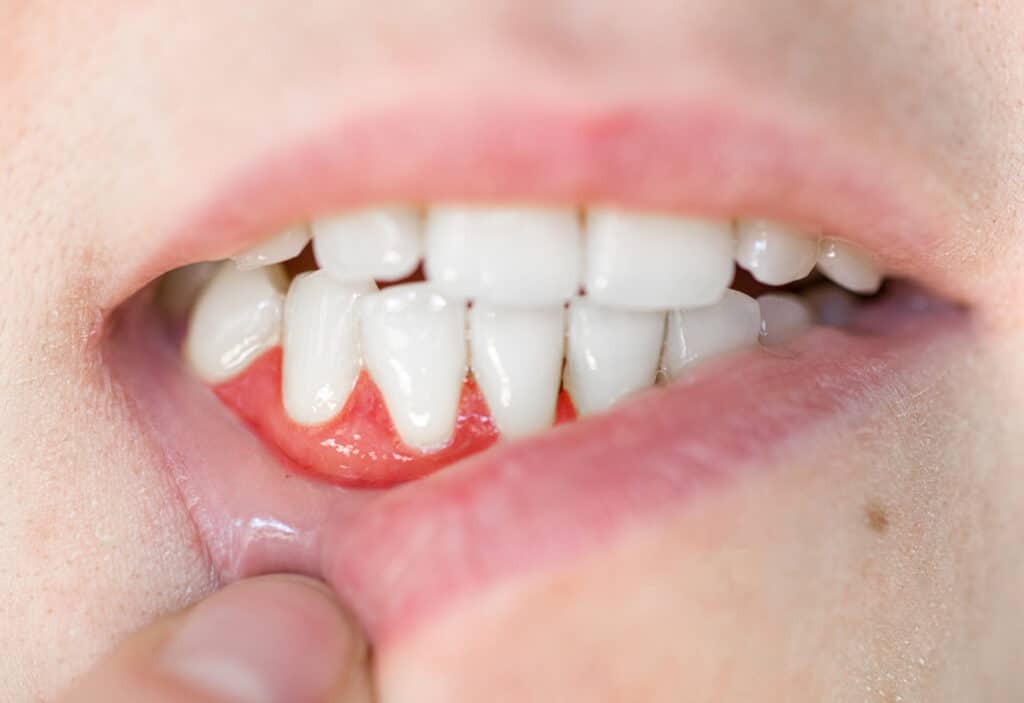
The Side Effects of Oil Pulling
While oil pulling is known for being relatively safe, there are certainly some side effects you may experience, especially when you are just beginning the process. When you first add it to your routine, you may notice some jaw soreness and headaches. These are often attributed to the excessive swishing motion and may alleviate over time.
You may also experience an upset stomach if you accidentally swallow the oil. While there are very few side effects, it is important that you do not replace properly brushing and flossing your teeth with oil pulling. You should always follow the advice provided for you by your dentist or endodontist, as they have a thorough understanding of your oral health history and the current condition of your teeth. Choosing to disregard the advice provided by your dental care provider may lead to dealing with these uncomfortable side effects, or in more severe cases, tooth decay or damage.
Can Oil Pulling Replace a Root Canal?
Many people often experience heightened levels of anxiety when facing a larger dental procedure, including root canals. However, it is important to state that root canals are currently the most reliable way to address problems within your tooth, especially when focusing on severe levels of infection. While there are alternative dental procedures to address problems within the root of the tooth, there are no products on the market that can act as a reliable substitute.
A root canal is a procedure that focuses on removing infected tissue within the tooth, called the pulp. The process is essential for preserving the health and integrity of your tooth. Once the infection has reached the pulp of your teeth, the best course of action is to reach out to your endodontist to schedule a root canal. So no, oil pulling is not currently a reliable replacement for a root canal. Attempting to substitute with oil pulling or other home remedies may inadvertently make the problem much worse.
The Risk of Putting Off a Root Canal
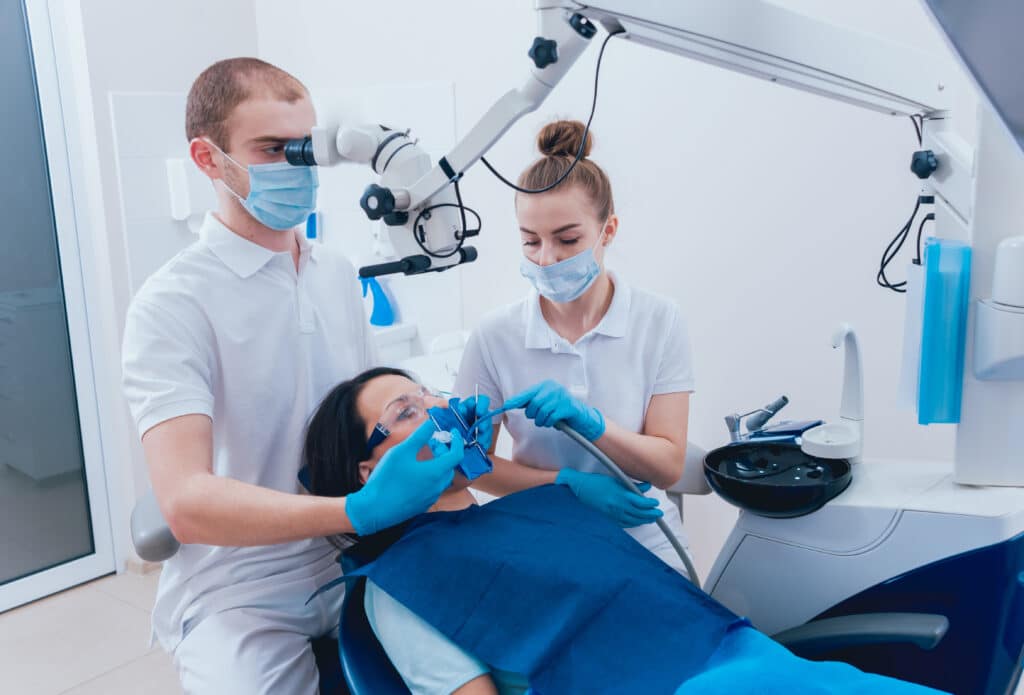
When you delay a necessary root canal in order to attempt healing through home remedies, there are many complications you risk running into. Some of the most common risks of putting off a root canal include:
- Increased pain
- Spread of infection
- Abscess formation
- Tooth loss
- Increased treatment complexities
- And more
While we understand that you may want to put this procedure off due to anxiety, the risks far outweigh the discomfort. If your endodontist has recommended a root canal, it is essential that you schedule the appointment as soon as possible to protect your teeth from much more severe damage.
Should You Add Oil Pulling to Your Oral Hygiene Routine?
With all of this in mind, is adding oil pulling to your oral hygiene routine worthwhile? As we have already mentioned above, the American Dental Association doesn’t currently recommend adding it to your routine. Their stance emphasizes the importance of evidence-based practices and treatments with proven benefits for oral health, which oil pulling doesn’t currently have.
So, should you add it to your routine? The answer is a personal one. While the scientific support for oil pulling is currently limited, some have reported positive experiences with the method. Ultimately, if you choose to add it to your everyday routine, it is important that it isn’t used in place of other techniques. You should continue to brush and floss your teeth twice a day, even if you choose to incorporate oil pulling, to protect your teeth from any decay or damage.
If you are thinking about incorporating or are struggling to decide whether incorporating the technique into your everyday routine is best for you, you may want to consider consulting with your dentist or endodontist. They can help you determine whether your current oral hygiene routine is meeting your specific needs and goals.

Root Canals with a Reliable Endodontist
If your cavity has developed into a more severe dental infection and you are in need of a root canal, don’t turn to oil pulling. Prolonging your root canal may lead to more severe infection or, in more severe cases, tooth loss. If you need to get a root canal, our team at David G. Johnson, DDS, is the perfect team to rely on for this intimidating dental procedure.
Dr. David Johnson has been practicing endodontics in Northern Utah since 1990, and we are confident that he can help you through any root canal procedure. With several decades of experience, we are confident that he can help you through any root canal, no matter how severe. If you have any questions or would like to schedule a root canal with our expert team, reach out to us at our Layton or Centerville locations today.




